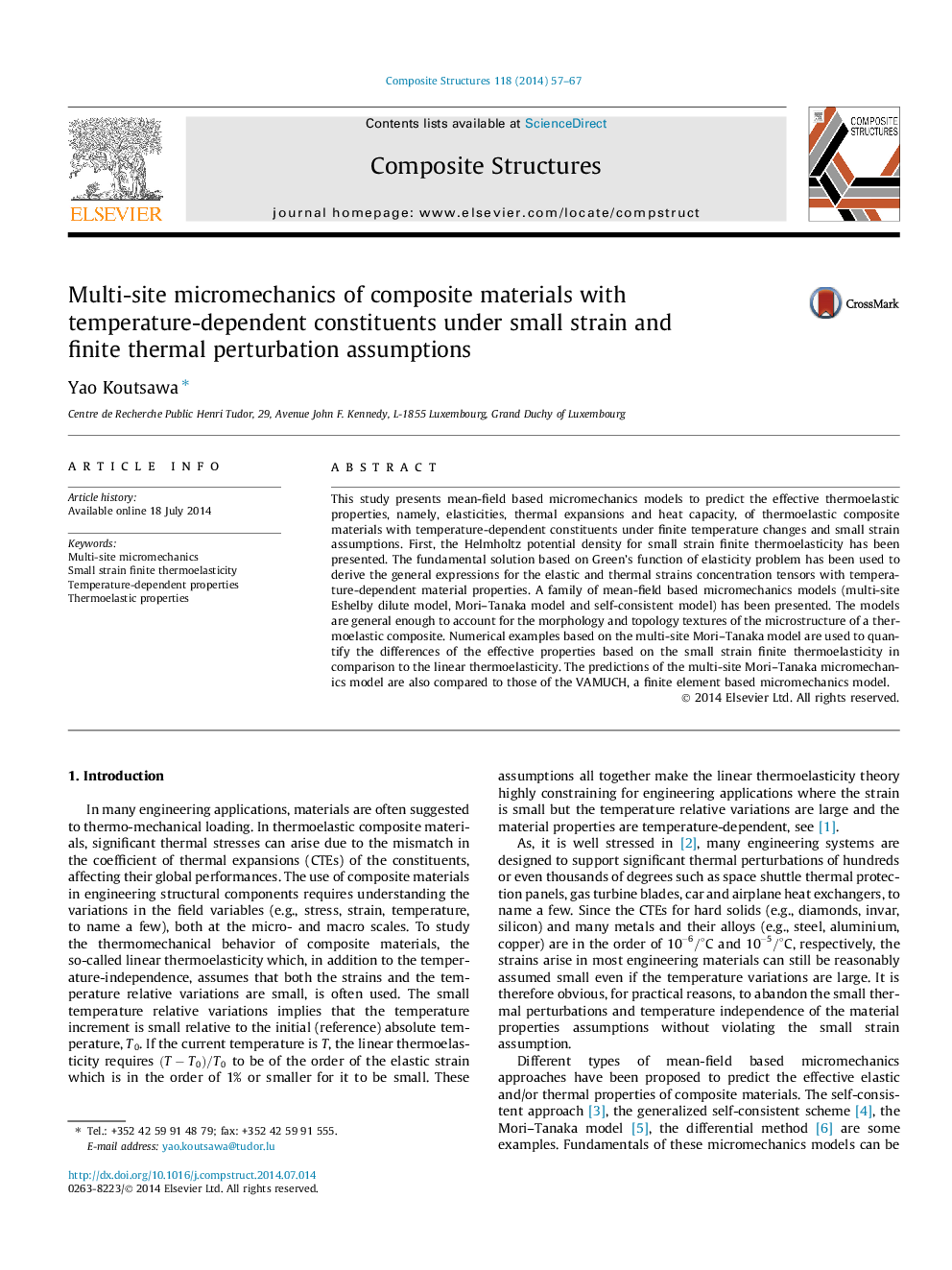| Article ID | Journal | Published Year | Pages | File Type |
|---|---|---|---|---|
| 6707434 | Composite Structures | 2014 | 11 Pages |
Abstract
This study presents mean-field based micromechanics models to predict the effective thermoelastic properties, namely, elasticities, thermal expansions and heat capacity, of thermoelastic composite materials with temperature-dependent constituents under finite temperature changes and small strain assumptions. First, the Helmholtz potential density for small strain finite thermoelasticity has been presented. The fundamental solution based on Green's function of elasticity problem has been used to derive the general expressions for the elastic and thermal strains concentration tensors with temperature-dependent material properties. A family of mean-field based micromechanics models (multi-site Eshelby dilute model, Mori-Tanaka model and self-consistent model) has been presented. The models are general enough to account for the morphology and topology textures of the microstructure of a thermoelastic composite. Numerical examples based on the multi-site Mori-Tanaka model are used to quantify the differences of the effective properties based on the small strain finite thermoelasticity in comparison to the linear thermoelasticity. The predictions of the multi-site Mori-Tanaka micromechanics model are also compared to those of the VAMUCH, a finite element based micromechanics model.
Related Topics
Physical Sciences and Engineering
Engineering
Civil and Structural Engineering
Authors
Yao Koutsawa,
